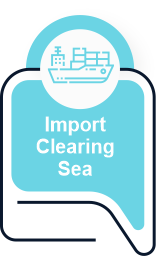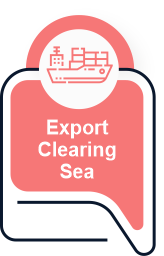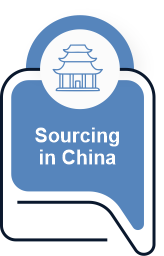Indian Import-Export Policy
About Import-Export Policy
India is a land of opportunities for foreign investors. The country’s vast population provides a ready market for goods and services. India is also rich in natural resources, making it an attractive destination for manufacturing companies. However, it is important to understand the country’s import-export policy before investing in India. This policy of the Indian government is the flow of goods and services into and out of India. In this article, you will read the main points of India’s import-export policy.
In addition, our company offers the best services for freight forwarding. So please contact us if you are looking for reliable freight rates. We can be reached at +91-9311595648 or at cargodeal@falconfreight.com.
What Is the Export and Import Policy in India?
A set of guidelines and rules governs the export and import of goods in India under the Indian Export and Import Policy. In addition to promoting exports, the policy protects domestic industries from foreign competition. As a part of the Ministry of Commerce and Industry, the Directorate General for Foreign Trade (DGFT) is responsible for regulating the policy. Directorate General of Foreign Trade (DGFT), a Ministry of Commerce and Industry division, manages the policy.
The Export and Import A part of the Ministry of Commerce and Industry, the Directorate General for Foreign Trade (DGFT), administers the policy. The plan is revised Every five years.
The most recent revision was in 2015. Policy objectives include:
– Promote export-oriented production
– Encourage efficient use of resources
– Enhance India’s competitiveness in global markets
– Facilitate imports that are essential for economic development
– Protect domestic industries from unfair competition
The Export and Import Policy also contains several measures to achieve these objectives. These include:
– Tariff preferences for exports
– Export subsidies
– Market access initiatives
– Preferential market access for imports
– Import licensing
What are India's Export and Import Policies?
India is the world’s fastest-growing major economy and has the third-largest population on the planet. In the midst of global trade uncertainty, India’s government must find ways to sustain its growth. India’s export and import policies play an important role in the country’s economy. They are designed to promote economic growth and development while protecting the domestic market. The government’s main objectives when it comes to trade policy are to:
- Promote the competitiveness of the Indian industry
- Encourage foreign investment
- Generate employment
- Stimulate economic growth
To achieve these objectives, the government has implemented many policies and programs. These include measures to reduce tariffs, improve infrastructure and provide financial support to businesses. The government has also signed some free trade agreements (FTAs), which have helped to liberalize trade and boost exports. Over the past few years, India has been working hard to become a member of the WTO.
Explain the Export and Import Policy of India
The government of India has been taking various steps to promote exports from the country. Export and import policy is an important part of this effort. Its main purpose is to promote Indian exports while protecting its domestic market from foreign competition. This policy provides a framework within which exporters and importers can operate. It also sets out the rules and regulations governing the export and import of goods and services.
- Firstly, export and import policy is governed by the Foreign Trade (Development & Regulation) Act, of 1992. The Act provides for establishing the Directorate General of Foreign Trade (DGFT), responsible for administering the policy.
- Secondly, DGFT is responsible for issuing licenses and permits for exporting and importing goods and services. The Import and Export Policy monitors and enforces compliance with the provisions of the policy.
- Additionally, the export and import policy contains a list of prohibited items that cannot be exported or imported under any circumstances. These items include nuclear weapons, drugs, pharmaceuticals, endangered species, precious stones, metals, etc.
- Finally, the policy also contains a list of restricted items that can be exported or imported only under certain conditions.
The Latest Import Export Policy for India
The government recently announced India’s latest import-export policy, which will benefit domestic and foreign firms. Businesses can import and export goods more easily under the policy.
Some of the Key Changes include:
- Firstly, reduction in the number of documents required for importing and exporting goods
- Secondly, the introduction of an e-commerce portal for online filing of import and export documentation
- In addition, simplification of customs procedures.
- Further, the introduction of a single window clearance system for all import and export-related formalities
- Lastly, the changes are expected to boost trade and commerce in India, benefiting the economy in the long run.
Why does India have Export and Import Policies?
India has export and import policies to help promote and protect its domestic industries. Increasing domestic production can boost the economy by restricting the import of certain goods. Similarly, India can make its products more competitive in the global marketplace by imposing tariffs on exports. Keeping these policies in place will ensure that Indian businesses and workers can compete in the global economy.
How does it Affect Trade in the Country?
India’s export and import policies can significantly impact trade in the country. For example, if the government imposes high tariffs on imported goods. It can make them more expensive and discourage people from buying them. This can lead to a decrease in trade between India and other countries. On the other hand, if the government lowers tariffs or removes them completely. It can make imported goods more affordable and encourage people to buy them. This can lead to an increase in trade between India and other countries.
What are the Most Important Policies for Traders to know about?
Regarding India’s export and import policies, there are a few key things that all traders should be aware of. Firstly, India is a member of the WTO, which means it has committed to following its rules and regulations. Secondly, India is a signatory to the GATT, establishing the international trade framework. Meanwhile, India maintains some tariffs and restrictions on imported goods. These measures are designed to protect Indian industry from competition from abroad as well as to generate revenue. As a result, traders need to be aware of these policies and consider them when doing business with India. Overall, India’s export and import policies are relatively complex. However, the key to ensuring compliance with the law understands the key underlying principles.
In Conclusion
India’s export and import policies play a vital role in the country’s economy. Since India liberalized these policies, its trade with the rest of the world has increased, resulting in economic growth. These policies have also helped to create jobs and reduce poverty levels in the country.
MORE FROM OUR SERVICES









